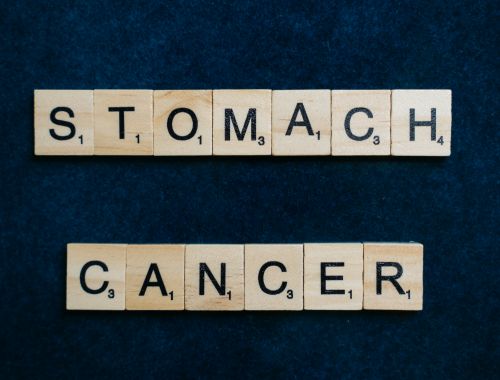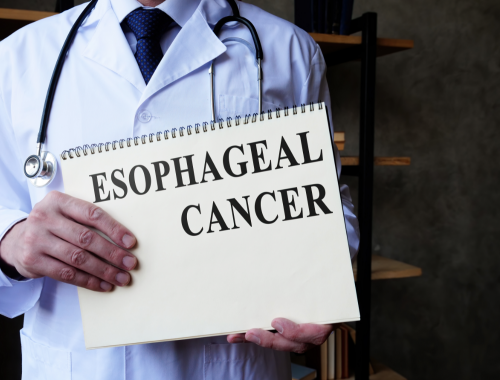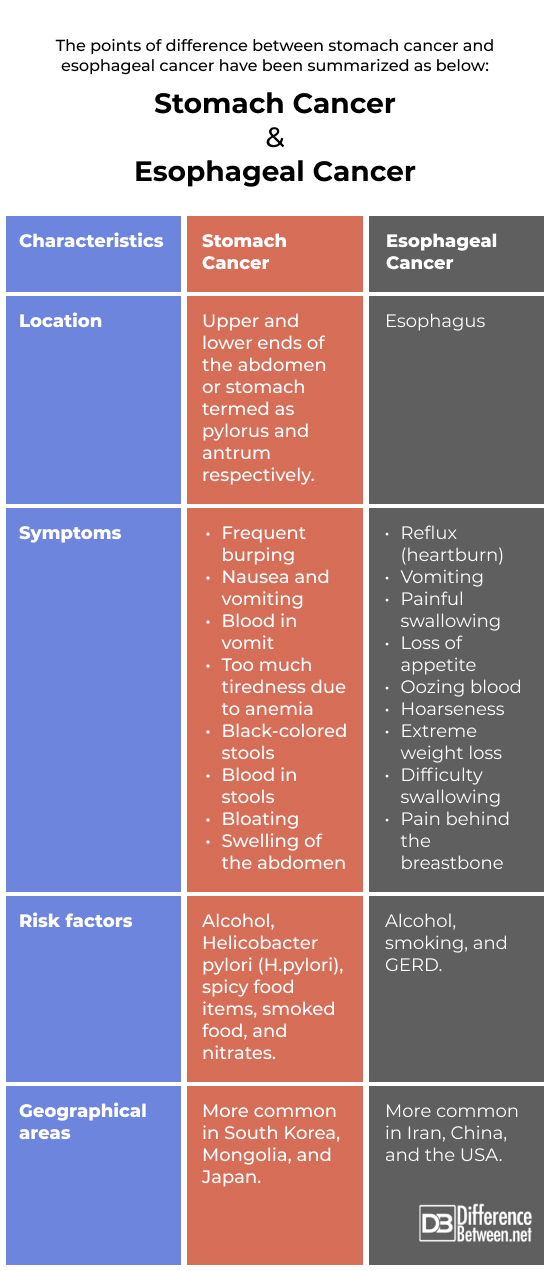Difference Between Esophageal Cancer and Stomach Cancer

Difference between Esophageal cancer and stomach cancer
Malignant or cancerous tumors that are identified in the stomach or esophagus tissues are how stomach and esophageal cancers manifest. It is a cancer with a slow growth rate, and symptoms may be hidden for many years.
The lymph nodes, liver, pancreas, or large intestine are some of the nearby organs where the abdomen or stomach cancer can spread travelling through the gut wall. It can even reach the lungs through the bloodstream.
Where the esophagus (also called food pipe) joins the stomach or the abdomen is frequently where esophageal malignancy is discovered. Esophageal cancer can spread to adjacent lymph nodes if it is not diagnosed and detected early.
These cancers have increased over a period of time due to an unhealthy diet and sedentary lifestyle. Healthy diet, exercise and some lifestyle changes can reduce the risk of these cancers.

Similarity
Both conditions have similar symptoms like nausea, weight loss, appetite loss, heartburn, difficulty in swallowing and persistent indigestion.
Stomach cancer
Also called as gastric cancer, it is defined as the growth of cancerous cells that starts in the stomach. Some symptoms include heartburn, indigestion, nausea, abdominal fullness, weight loss and difficulty swallowing.
Esophageal cancer
It is a cancer or malignancy that occurs in the esophagus – a long and hollow tube that extends or starts from your throat and runs to your stomach. It is more common in women. It can occur in any part of the esophagus. Some of the symptoms include coughing, vomiting, pain in chest, weight loss and difficulty swallowing.
Difference between Stomach cancer and Esophageal cancer
Definition
Stomach cancer
Stomach or gastric cancer occurs in the stomach. It happens when abnormal cancerous cells in the stomach grow in an uncontrolled way.
Esophageal cancer
Esophageal or food pipe cancer occurs or starts in the esophagus. It is a cancer that can happen in any part of the esophagus also termed as gullet or food pipe.
Symptoms
Stomach cancer
Nausea, pain in the abdomen. loss of weight, and loss of appetite.
Esophageal cancer
- Bone pain
- Bleeding in the esophagus
- Difficulty in swallowing
- Vomiting
- Weight loss
Types
Stomach cancer
Intestinal type and diffuse cancer
Esophageal cancer
- Adenocarcinoma – It starts in the cells of glands that produce mucus in the esophagus and it impacts mostly the white men.
- Squamous cell carcinoma – It happens in the upper and central portions of the esophagus. It is more common.
- Other rare types – cell carcinoma, sarcoma (that occurs in the bones and soft tissues), lymphoma (cancer of the lymphatic system), melanoma (a cancer of skin cells called melanocytes) and choriocarcinoma (tumor that develops from trophoblastic cells)
Diagnosis
Stomach cancer
Stomach cancer is diagnosed by endoscopy, ultrasonography, Positron emission tomography (PET scans), CT scans, staging laparoscopies (Laparoscopy in combination with laparoscopic ultrasonography for tumors of the abdomen) and biopsies.
Esophageal cancer
Endoscopic ultrasound (examines the inside of your digestive tract), barium studies (esophagram) (Imaging test to check issues with your upper gut), upper endoscopy, also known as esophagus-gastric-duodenoscopy or EGD, and biopsy are used to diagnose esophageal cancer.
Treatment
Stomach cancer
Treated mainly through endoscopic mucosal resection (EMR) (a procedure to remove precancerous, early-stage cancer or other abnormal tissues), gastrectomy (surgery to remove all or part of the stomach), radiotherapy (RT, RTx, or XRT, is a therapy using ionizing radiation as part of cancer treatment), and chemotherapy.
Esophageal cancer
Treated mainly through surgical resection called esophagectomy (a surgical method to remove some or all of the digesting tube between your mouth and esophagus), chemotherapy, and radiotherapy (RT, RTx, or XRT, is a therapy using ionizing radiation as part of cancer treatment) or a combination of both.
Summary
The points of difference between stomach cancer and esophageal cancer have been summarized as below:

FAQ:
What are the symptoms of stomach cancer and esophageal cancer?
- Persistent indigestion
- Difficulty swallowing or excessive belching with eating
- Bloating
- Burning sensation in the abdomen
- Loss of appetite
- Pain in the breastbone
- Frequent burping
- Heartburn
Is stomach cancer close to esophagus?
Both the body of the abdomen or the stomach and its upper most part (proximal), which is close to the esophagus (food pipe), are susceptible to stomach cancer. Proximal gastric malignancy prevalence is rising in America.
How long can you live with esophagus and stomach cancer?
With end-stage esophageal cancer/stomach cancer, the average survival period is only four to six months, and it is challenging to reach five years. Thus, it is impossible to figure out the precise survival time for each esophageal cancer patient. One of the reasons is also the myriad of variables that affect how long someone with this cancer lives.
What can esophageal cancer be confused with?
Esophageal cancer (malignancy) is often mistaken for other medical conditions, including: Acid reflux (GERD, gastroesophageal reflux disease), Esophagitis (esophagus inflammation), and Tracheoesophageal fistula (TEF) or Esophageal fistula.
What is the biggest symptom of stomach cancer?
- Stomach pain
- Vomiting with blood
- Heartburn
- Loss of appetite
What is the number one symptom of stomach cancer?
Nausea, heartburn, indigestion
- Difference Between Global Warming and Greenhouse Effect - May 18, 2024
- Difference Between Vaccination and Immunization - March 3, 2024
- Difference Between Selective Mutism and Autism - February 25, 2024
Search DifferenceBetween.net :
Leave a Response
References :
[0]Alsop, B. R., & Sharma, P. (2016). Esophageal cancer. Gastroenterology Clinics, 45(3), 399-412.
[1]Brenner, H., Rothenbacher, D., & Arndt, V. (2009). Epidemiology of stomach cancer. Cancer epidemiology: modifiable factors, 467-477.
[2]Enzinger, P. C., & Mayer, R. J. (2003). Esophageal cancer. New England Journal of Medicine, 349(23), 2241-2252.
[3]Ilic, M., & Ilic, I. (2022). Epidemiology of stomach cancer. World journal of gastroenterology, 28(12), 1187.
